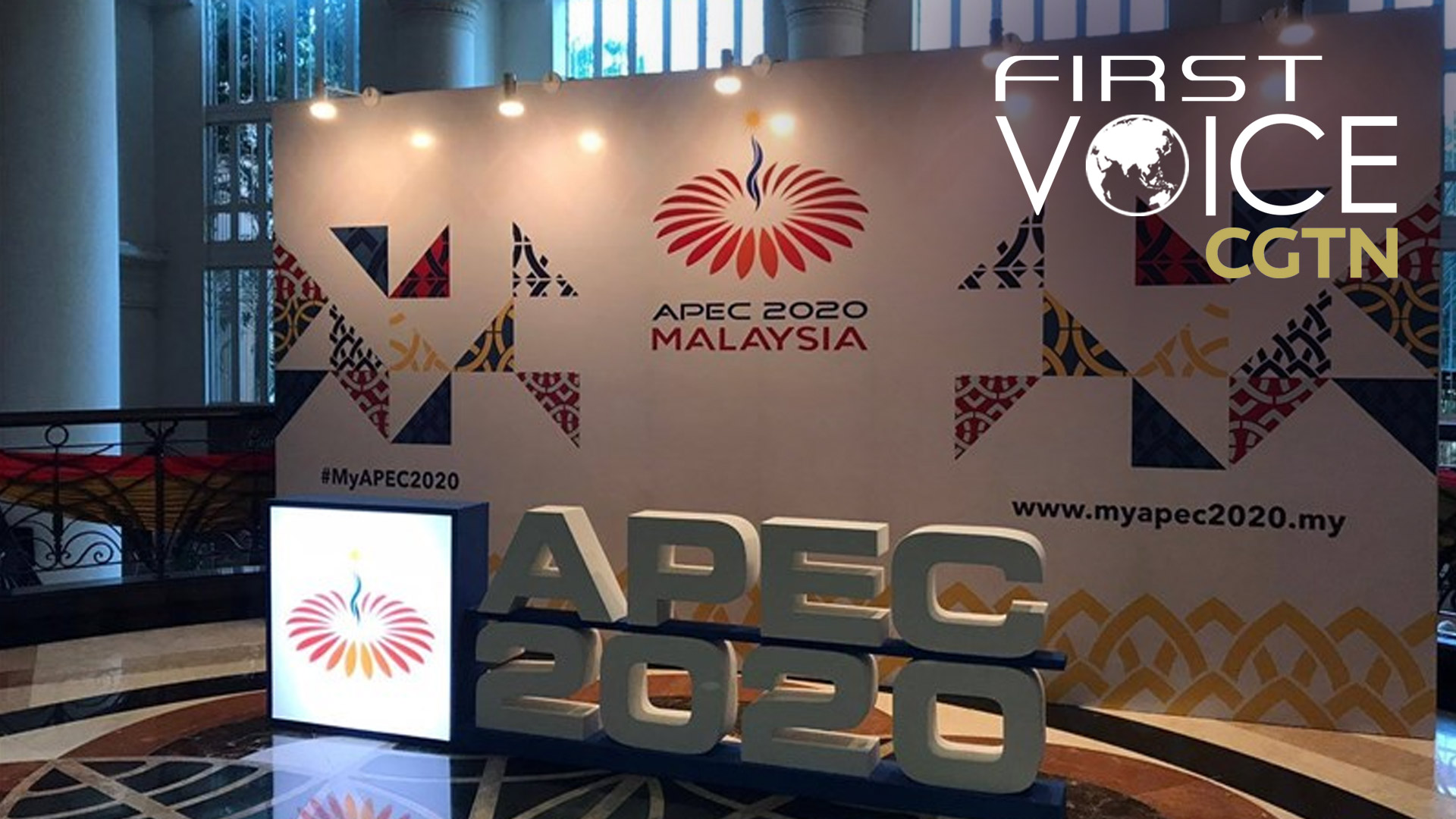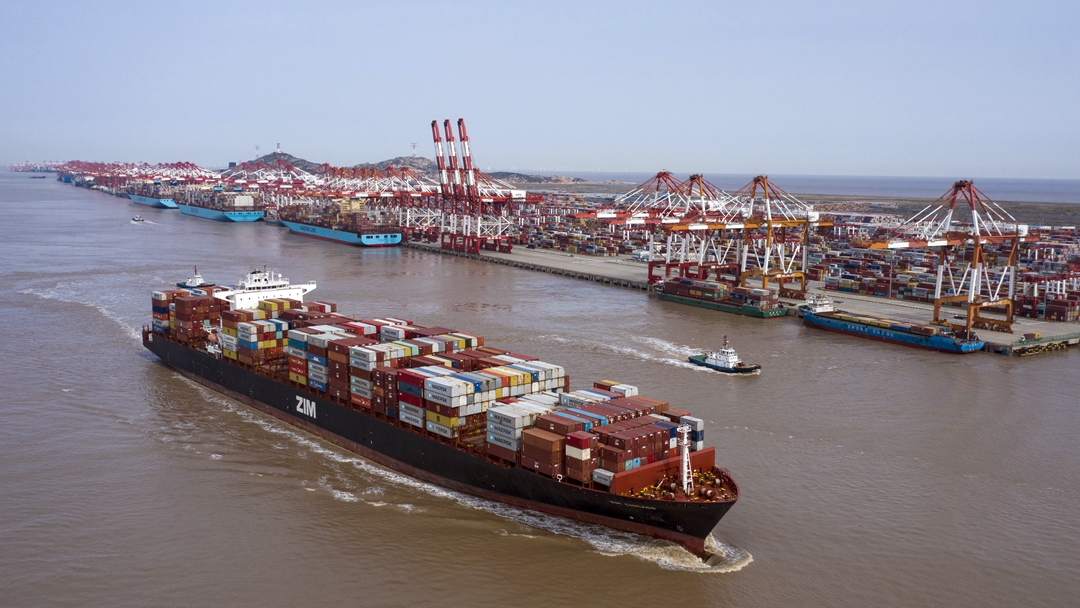
Editor's note: CGTN's First Voice provides instant commentary on breaking stories. The daily column clarifies emerging issues and better defines the news agenda, offering a Chinese perspective on the latest global events.
Chinese President Xi Jinping undertook a video address to the Asia-Pacific Economic Cooperation (APEC) CEO Dialogues on November 19. During his speech, Xi emphasized that globalization is irreversible and vowed "not reverse course or run against the historical trend by 'decoupling' or forming a small circle to keep others out". He further stressed that "no country can develop itself by keeping its doors closed" and that China will continue to seek free trade agreements with other countries. The comments come after the signing of the Regional Comprehensive Economic Partnership (RCEP) the previous week, a region-wide trade agreement that has been dubbed "the largest in history" and the first of its kind in Asia.
Why does this speech matter? Despite the free trade breakthrough, there are some countries in the world who are increasingly weaponizing protectionism and the "politics of national security" to advocate a withdrawal from globalization and a denunciation of free and multilateral trade. Some specifically advocated decoupling with China, arguing that they should be less integrated for ideological and political reasons.
The United States under the Donald Trump's administration has primarily led this call, but others have been receptive to the idea too. However, none of it is realistic. Enhanced connectivity and economic engagement is the only way forwards for increasing prosperity, and in turn that is what China will continue to advocate.
"Globalization" can be a scary phenomenon. It is a term which has, albeit misleadingly, attracted negative connotations. It did so primarily through the fact that the experience of a changing world has caused insecurity for certain identities, especially in the West. Yet, globalization is not a sinister conspiracy or a malign plot, but a process whereby the world becomes increasingly interconnected and interdependent as the advances of technology make it a much-connected place.

A container ship sails out of Yangshan Deepwater Port in Shanghai, China, March 23, 2020. /VCG
A container ship sails out of Yangshan Deepwater Port in Shanghai, China, March 23, 2020. /VCG
Hundreds of years ago, prior to the invention of modern transport, a journey from London to Scotland by horseback may take over a week. A journey to America by boat? A month. And travel to a distant land like China? Even longer. Yet, in the world we live in today, all of these journeys are feasible within the span of a single day, the first, an hour.
Thus, in a globalized world, what was "distant" is no longer distant. What might be the problems of one country are not just "their problem" but can be ours too. This has had profound implications for the evolution of what might be described as "international society" as countries become increasingly connected and dependent on one another. Markets and economies overlap, and the prosperity of one country is weighted to another. If a large economy sneezes, the whole world may receive a cold. Therefore, it is imperative that cooperation between nations grow and that "common pathways" are configured for security, prosperity and so on. The idea that globalization can be reversed without severe consequences, is a non-starter.
But, that is what is happening. Some politicians and movements have gained traction that the process of "globalization" and "integration" are inherently a bad thing and undermine the "identity" or security of that given country. The Trump administration has presented a globalized economy as a zero-sum game that allows countries like China to gain at America's expense. In turn, the administration has waged trade wars against multiple parties, wielding tariffs against them and placing prohibitions on technology. He has claimed that doing so will bring back jobs and prosperity to America, and has empowered individuals who believe that rolling back globalization to a Cold War era divide is beneficial. These isolationist policies stand to take the world backwards.
China itself will continue to be an advocate of globalization and integration. It will continue to promote, engage and secure free trade agreements and take a path of economic openness rather than pulling up the drawbridge. "Decoupling" is in the interests of nobody, and only through an enhanced multilateral vision can humanity adequately respond to the challenges it faces today.
(If you want to contribute and have specific expertise, please contact us at opinions@cgtn.com.)

